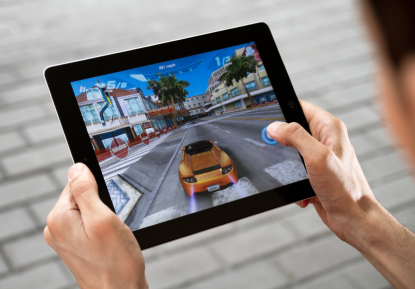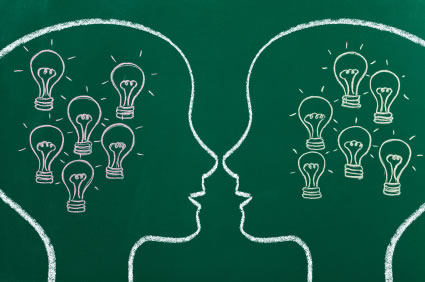
iStockphoto
eeling angry and annoyed with others is a daily part of life, but most people don’t act on these impulses. What keeps us from punching line-cutters or murdering conniving co-workers? Self-control. A new review article in
Current Directions in Psychological Science, a journal of the
Association for Psychological Science, examines the psychological research and finds that it’s possible to deplete self-control—or to strengthen it by practice.
Criminologists and sociologists have long believed that people commit violent crimes when an opportunity arises and they’re low on self-control. “It’s an impulsive kind of thing,” says Thomas F. Denson, a psychologist at the University of New South Wales. He cowrote the new article with C. Nathan DeWall at the University of Kentucky and Eli J. Finkel at Northwestern University. For the last 10 years or so, psychologists have joined this research, using new ways of manipulating self-control in experiments; they have found that, indeed, self-control and aggression are tightly linked. [continue reading…]
Author: MICHAEL KASUMOVIC, THE UNIVERSITY OF NEW SOUTH WALES

Image: iStockphoto
Just like rock music in the 1950s, Dungeons & Dragons in the 1980s, and death metal in the 1990s, videogaming has been demonised by parent groups. For decades, gamers were portrayed as obese social outcasts that spent hours in a dark basement hunched over a flashing screen, slowly becoming more aggressive and distanced from reality.
Today, that stereotype couldn’t be further from the truth. The average gamer is as likely to be a university professor or a corporate banker as they are to be a high school or college student.
Furthermore, a growing body of research is showing a whole host of health benefits associated with gaming. The most recent piece of research shows an improvement in vision in those who suffer from congenital cataract disorders.
But it wasn’t always this way. Early studies were quick to demonstrate the negative consequences of gaming, linking time spent in front of a console or PC with:
In fact, videogame-related literature in the mid-2000s paints a bleak, violent and anti-social picture of gamers. With the help of the media, videogames quickly became the scapegoat for everything that was going wrong with kids. [continue reading…]
A team of academic researchers has identified the intracellular mechanisms regulated by vitamin D3 that may help the body clear the brain of amyloid beta, the main component of plaques associated with Alzheimer’s disease.
Published in the March 6 issue of the Journal of Alzheimer’s Disease, the early findings show that vitamin D3 may activate key genes and cellular signaling networks to help stimulate the immune system to clear the amyloid-beta protein.
Previous laboratory work by the team demonstrated that specific types of immune cells in Alzheimer’s patients may respond to therapy with vitamin D3 and curcumin, a chemical found in turmeric spice, by stimulating the innate immune system to clear amyloid beta. But the researchers didn’t know how it worked.
“This new study helped clarify the key mechanisms involved, which will help us better understand the usefulness of vitamin D3 and curcumin as possible therapies for Alzheimer’s disease,” said study author Dr. Milan Fiala, a researcher at the David Geffen School of Medicine at UCLA and the Veterans Affairs Greater Los Angeles Healthcare System.
[continue reading…]

Image: iStockphoto
rom the corporate boardroom to the kitchen table, important decisions are often made in collaboration. But are two—or three or five—heads better than one? Not always, according to new research from the University of Pennsylvania’s Wharton School. “People who make judgments by working with someone else are more confident in those judgments. As a result they take less input from other people”—and this myopia wipes out any advantage a pair may have over an individual, says psychologist Julia A. Minson, who conducted the study with Jennifer S. Mueller. “The collaborative process itself is the problem.” The findings appear in the journal
Psychological Science, published by the
Association for Psychological Science.
To test the hypothesis that confidence born of collaboration takes a toll on the quality of judgment, Minson and Mueller asked 252 people to estimate nine quantities related to U.S. geography, demographics, and commerce, either individually or in pairs after discussion. They were then offered the estimates of other individuals and pairs and allowed to revise their own; the final estimates therefore could come from the efforts of two to four people. To sweeten the pot, participants earned a $30 bonus for each of two estimation rounds, but lost $1 for each percentage point their answer deviated from correct. Individuals also rated their confidence in their judgments. [continue reading…]



